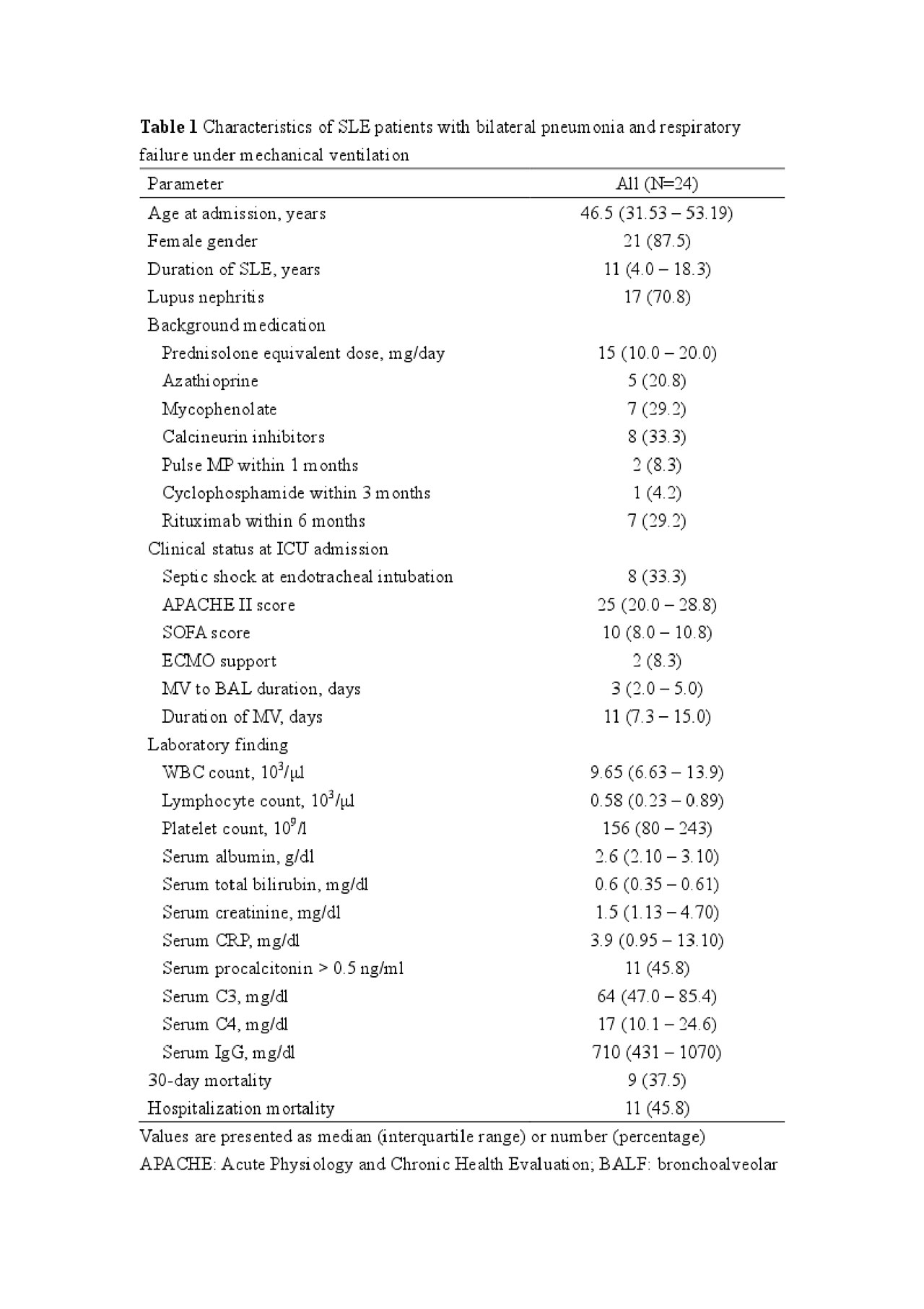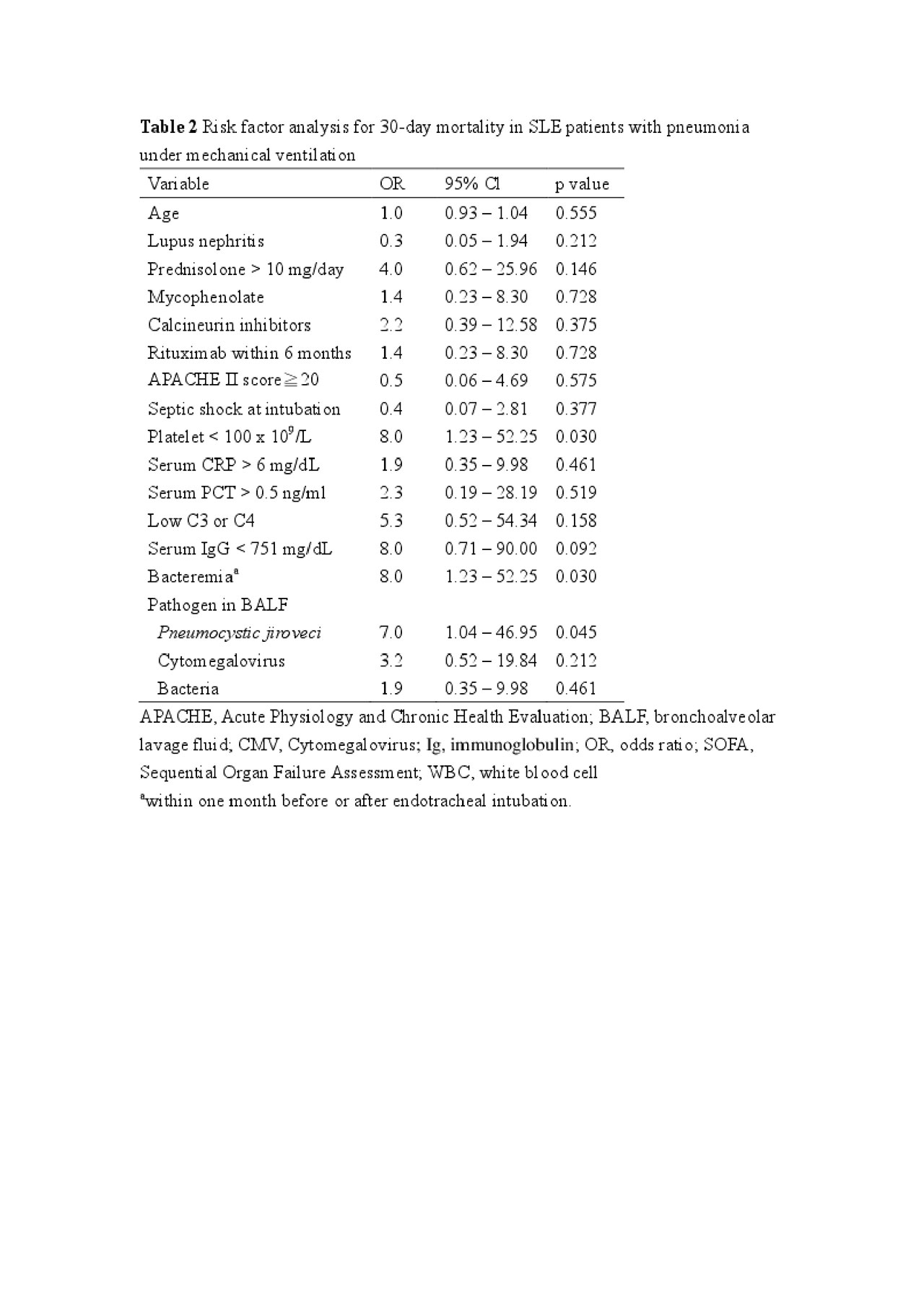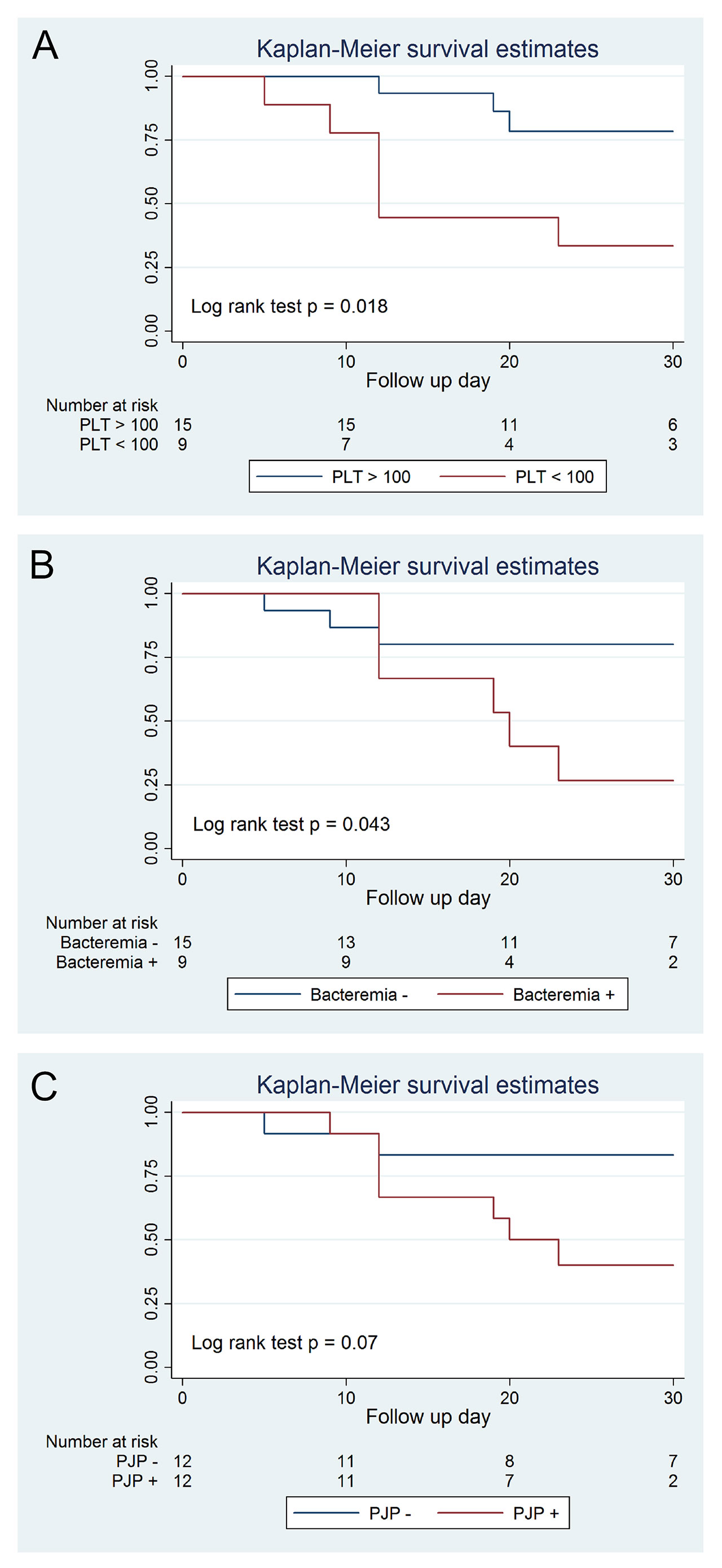Session Information
Session Type: Poster Session (Monday)
Session Time: 9:00AM-11:00AM
Background/Purpose: To evaluate the pathogens from bronchoalveolar lavage fluid (BALF) and risk factors of mortality in SLE patients with pneumonia and respiratory failure.
Methods: Twenty-four SLE patients were enrolled. Clinical characteristics, laboratory profiles at admission, and microbiology from BALF were presented. We also performed univariable analyses for mortality risk.
Results: Among the 24 patients (21 women, median age: 46.5 years; duration of SLE: 11 years), 8 of them had septic shock, and 9 of them died within 30 days. All of them were supported with mechanical ventilations with a medial duration of 11 days (Table 1). Pathogens identified from BALF were Pneumocystis jiroveci pneumonia (PJP) in 12 patients (50%), Cytomegalovirus in 7 patients (29.2%), bacteria in 11 patients (45.8%). Thirteen patients (54.2%) had blood stream infections, the leading causes were cytomegalovirus in 8 patients (33.3%) and E. coli in 5 patients (20.8%). Univariable analysis indicated that the presence of thrombocytopenia (odd ratio [OR]: 8.0, 95% confidence interval [CI]: 1.23–52.25), bacteremia before or after one month of endotracheal intubation (OR: 8.0, 95% CI: 1.23–52.5), and PJP (OR: 7.0, 95% CI: 1.04–46.95) were risk factors for 30-day mortality (Table 2). Kaplan-Meier analysis also confirmed the risk of 30-mortality in patients with thrombocytopenia and bacteremia (Figure 1).
Conclusion: The prevalence of cytomegalovirus and Pneumocystis jiroveci was high in BALF from SLE patients encountered pneumonia and respiratory failure. BALF analysis facilitated a pathogen-specific treatment, which may lower the overall mortality rate in such vulnerable patients. Thrombocytopenia, bacteremia, and PJP may indicate an increased 30-day mortality rate.
To cite this abstract in AMA style:
Lai C, Sun Y, Tsai C. Bronchoalveolar Lavage Fluid Analysis and Mortality Risk in Systemic Lupus Erythematosus Patients with Pneumonia and Respiratory Failure [abstract]. Arthritis Rheumatol. 2019; 71 (suppl 10). https://acrabstracts.org/abstract/bronchoalveolar-lavage-fluid-analysis-and-mortality-risk-in-systemic-lupus-erythematosus-patients-with-pneumonia-and-respiratory-failure/. Accessed .« Back to 2019 ACR/ARP Annual Meeting
ACR Meeting Abstracts - https://acrabstracts.org/abstract/bronchoalveolar-lavage-fluid-analysis-and-mortality-risk-in-systemic-lupus-erythematosus-patients-with-pneumonia-and-respiratory-failure/



